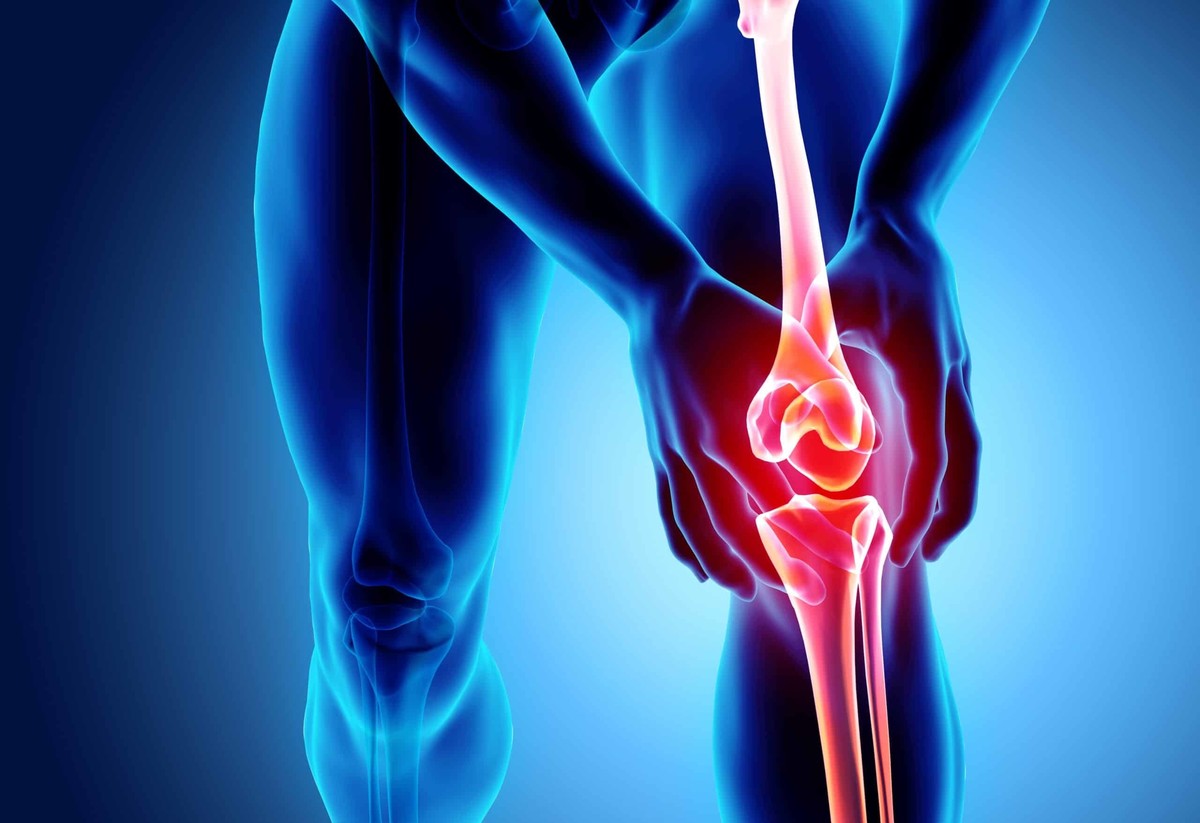Experiencing sharp, stabbing knee pain at night can be frustrating and disruptive to your sleep. Whether the pain comes and goes suddenly or lingers for hours, it could be a sign of an underlying condition. Understanding the potential causes and treatment options can help you find relief and improve your quality of life.
Common Causes of Nighttime Knee Pain
1. Osteoarthritis (Wear and Tear of the Joint)

- Osteoarthritis is a common cause of knee pain, especially in older adults.
- The cartilage that cushions the knee wears down over time, leading to stiffness and pain, particularly at night.
2. Bursitis (Inflamed Fluid Sacs in the Knee)
- The bursae are fluid-filled sacs that cushion the knee joints.
- Inflammation from overuse or injury can cause sharp, stabbing pain that worsens at night.
3. Patellar Tendonitis (Jumper’s Knee)
- Overuse of the knee can lead to inflammation of the patellar tendon.
- Pain may come and go, often worsening with movement or after a long day of activity.
4. Nerve Compression (Sciatica or Pinched Nerve)
- A compressed nerve in the lower back or leg can cause radiating knee pain, especially when lying down.
- Sciatica, for example, may cause pain that shoots down the leg into the knee.
5. Gout (Uric Acid Buildup in the Joint)
- Gout is caused by a buildup of uric acid, leading to sudden, intense knee pain at night.
- The affected joint may feel hot, swollen, and extremely tender.
6. Knee Injuries (Ligament or Meniscus Tears)
- Old or untreated knee injuries, such as ACL or meniscus tears, may cause pain flare-ups at night.
- Inflammation and fluid buildup can worsen when you’re resting.
7. Restless Leg Syndrome (RLS)
- This condition causes an uncomfortable sensation in the legs, often accompanied by pain.
- Symptoms worsen at night and improve with movement.
Why Does Knee Pain Get Worse at Night?
Several factors contribute to increased knee pain at night:
- Lack of Movement: Reduced circulation and stiffness set in when you’re inactive.
- Inflammation Peaks: The body’s inflammatory processes tend to be more active at night.
- Sleeping Positions: Certain positions put pressure on the knee joint, worsening discomfort.
How to Relieve Sharp Knee Pain at Night
1. Use Ice or Heat Therapy
- Ice packs reduce inflammation and numb sharp pain.
- Heating pads relax stiff muscles and improve circulation.
2. Adjust Your Sleeping Position
- Sleep with a pillow between your knees to reduce joint strain.
- Avoid sleeping on your side if it worsens knee pain.
3. Take Over-the-Counter Pain Relievers
- NSAIDs like ibuprofen or naproxen help reduce pain and inflammation.
- Consult a doctor if you need long-term pain relief.
4. Stretch and Strengthen Your Knee
- Gentle knee stretches before bed can reduce stiffness.
- Strengthening exercises for the quadriceps and hamstrings support knee stability.
5. Wear a Knee Brace for Support
- A compression sleeve or knee brace stabilizes the joint and reduces discomfort.
6. Massage and Elevate the Knee
- A gentle massage improves blood flow and relaxes tight muscles.
- Elevating your knee while lying down reduces swelling.
Also Read: How To Tape Knee For Pain – A Step-by-Step Guide!
When to See a Doctor
Seek medical attention if you experience:
- Severe knee pain that disrupts sleep regularly.
- Swelling, redness, or warmth around the knee.
- Difficulty walking or bearing weight.
- A history of knee injuries that haven’t healed properly.
FAQ’s
1. Why do I experience sharp knee pain at night?
Nighttime knee pain can be caused by conditions like osteoarthritis, bursitis, nerve compression, or injuries. Inflammation and lack of movement may worsen the pain while you rest.
2. Can sleeping position affect knee pain?
Yes, certain sleeping positions can put pressure on the knee joint. Sleeping with a pillow between your knees can help reduce strain and discomfort.
3. Is knee pain at night a sign of arthritis?
Osteoarthritis is a common cause of nighttime knee pain, especially in older adults. It results from cartilage breakdown, leading to stiffness and discomfort.
4. How can I relieve sharp knee pain at night?
You can try ice or heat therapy, wearing a knee brace, taking over-the-counter pain relievers, stretching, and adjusting your sleeping position for better support.
5. When should I see a doctor for nighttime knee pain?
If the pain is severe, persistent, or accompanied by swelling, redness, or difficulty walking, consult a doctor for a proper diagnosis and treatment.
6. Can nerve issues cause knee pain at night?
Yes, nerve compression (such as sciatica) can radiate pain into the knee, especially when lying down. A doctor can help determine if nerve issues are involved.
7. Is restless leg syndrome (RLS) related to knee pain?
RLS can cause discomfort in the legs, including the knees, with symptoms worsening at night. Moving the legs often provides temporary relief.
8. Does exercise help with nighttime knee pain?
Yes, gentle stretching and strengthening exercises for the knee and surrounding muscles can improve stability and reduce pain over time.
Final Thoughts
Sharp knee pain at night can have multiple causes, ranging from arthritis and tendonitis to nerve compression and injuries. Finding the right treatment depends on identifying the underlying issue. Try home remedies like heat therapy, proper sleeping positions, and strengthening exercises. If the pain persists or worsens, consult a doctor for a proper diagnosis and treatment plan. By addressing nighttime knee pain, you can improve sleep quality and enjoy pain-free movement during the day!
Related Post
- Zimatejigemo – Unlocking the Fusion of Creativity, Identity, and Innovation!
- Tinaypimatelate – The Revolutionary Concept Shaping the Future of Innovation!
- Limhuloxidpov – A Complete Guide to Understanding This Unique Concept!
- Zaxtexporoz – Exploring the Emerging Concept of Innovation and Digital Transformation!
- Lekulent – The Breakthrough Wellness Solution Taking the Health World by Storm!






